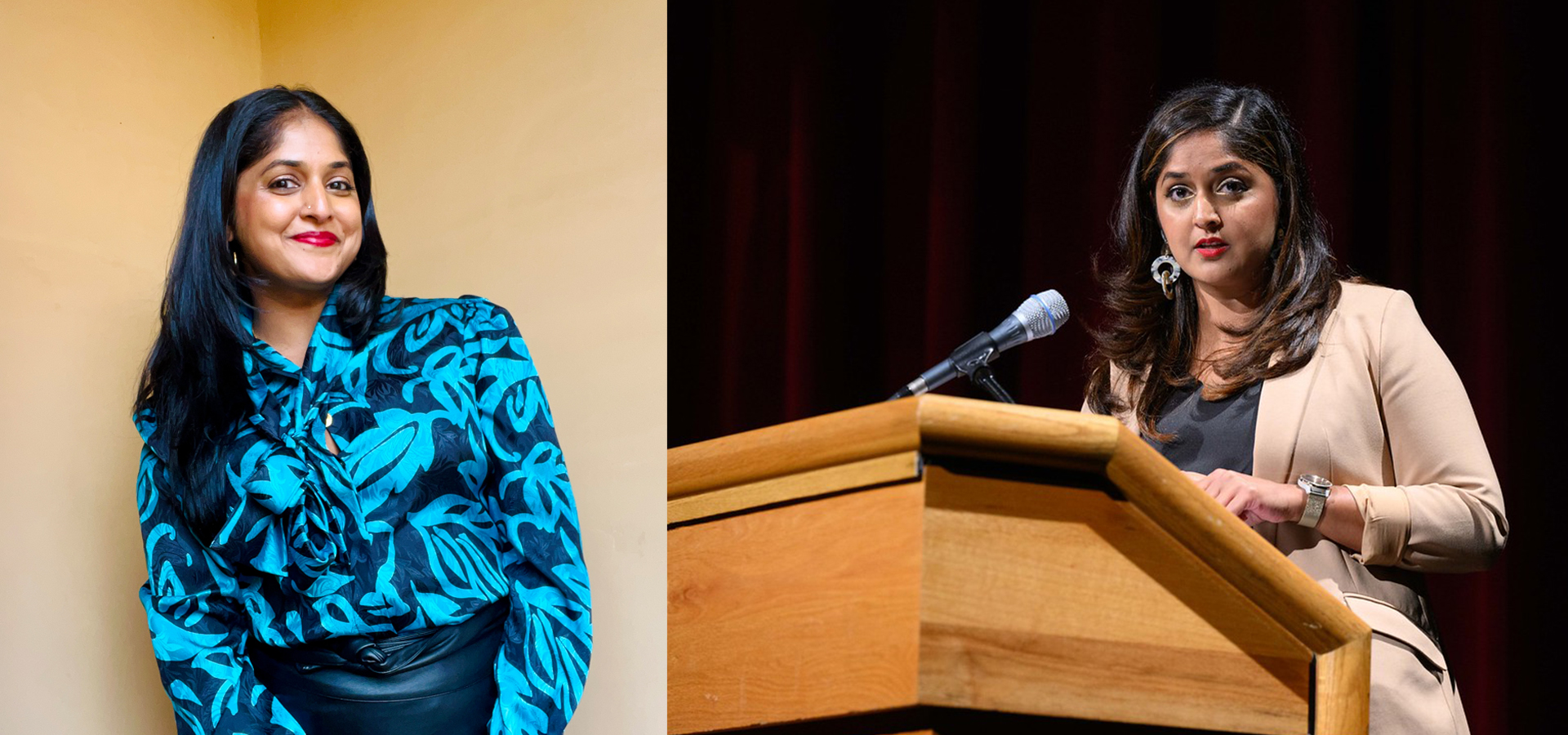

There’s a stigma to discussing mental health in many minority communities, and Madhuri Jha knows this from personal experience. “I come from a family in India that was greatly impacted by colonial violence; it showed up in different ways.” Her parents were the primary immigration sponsors for siblings and cousins, and they took care of the elders, but addiction or mental illness in her family went untreated. Madhuri remembers two family members actually lived at home, both with undiagnosed mental illness. “Not having a lot of means, they were just cared for by the family, who were really resourceful. That was my first exposure to trauma and resiliency, and a core function of psychiatry is understanding how the two are related to each other.” These experiences in her family, and dealing with her own anxiety, are at the core of Madhuri’s career focus on improving mental health care in communities like her own.
After graduating from George Washington University, Madhuri worked at a nonprofit as a program officer for USAID HIV/AIDS programs in South Africa and the Dominican Republic. “That was my first introduction to dozens of people who had PhDs and MPHs – everybody had an MPH there!” Madhuri saw firsthand that graduate school was key to furthering her career goals, and she ended up applying for NYU’s dual MSW/MPH program. “I can't really tell you why – it was just an intuitive feeling I had. I knew I wanted to be a clinical provider of some kind, and the joint program was really compelling. I actually took to being a clinician pretty passionately. I’m always interested in understanding health outcomes for folks, and how policies can either help or harm communities that have been historically neglected by our system.”
At a critical juncture in her studies at NYU, Madhuri received a piece of advice that guided her career trajectory for years. A mentor told her that “with a clinical degree, whether you're a physician, a nurse or a social worker, you should dig your heels in and work on the ground for as long as you can before you become a decision maker.” So she embarked on a series of community provider positions, working as a bilingual clinician serving undocumented clients, in the emergency room of New York Presbyterian Hospital, and directing a mobile psychiatry unit that treated the unhoused or seriously mentally ill during the Covid-19 pandemic.
In 2021, Madhuri moved to Atlanta to become executive director of the Kennedy Satcher Center for Mental Health Equity at the Morehouse School of Medicine. As she recalls, “We did amazing stuff there, and my career kind of took off. We tackled language access, what it means to be criminalized for having mental illness, the experiences of people who are immigrant-descended — obviously these are closely connected to my own life as a woman of color.” Her team also conducted a national survey ahead of the launch of 9-8-8, the national crisis line that went live in 2022, to understand how this bipartisan investment could reach those who have been historically neglected by the system. Their recommendations, reported in Embedding Equity into 988, have informed policy measures at the federal level. Madhuri continues to help implementation teams on the use of data: “It’s been really interesting, building my skills as an epidemiologist and as a clinical social worker, to help people understand the program.”
Madhuri is also a frequent advisor to SAMHSA and other departments in HHS, and she serves as a subject matter expert on a number of legislative task forces. But it’s her work as a clinical provider that is integral to her perspectives on policy. “Because of my exposure to many different settings, it's easy for me to identify when a policy is not going to work. When a legislator says, ‘I just want to offer everybody the same blanket service, and this is how much it's going to cost,’ I can respond with, ‘Without a stable place to live, they can't make appointments ... you can't expect success.’ When I’m asked how I know that, it’s because I worked in a clinic and in an ER, and I ran a mobile unit for people who are unhoused during Covid. It was that last experience, especially, that taught me how important it is to take our shields off and go where somebody needs you.”
Madhuri is currently vice president at ETR, a research non-profit that fosters science-based solutions to achieving positive health outcomes for children, families, and communities. As always, her passion for mental health and equity continues to be informed by her own family’s experiences. “Now I know it was because a basic understanding of health education really wasn't present in my family. People didn't live very long, or they had chronic medical issues that were untreated; no one went to the doctor unless they were on the verge of death. Now I know how to break cycles of generational trauma – you find ways to educate families and help them to understand that they don't have to repeat the same cycle.”